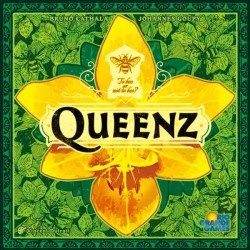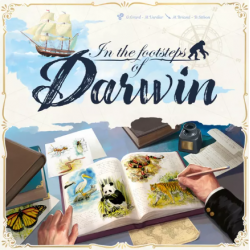No products in the cart.
Active filters
Takenoko
A long time ago at the Japanese Imperial court, the Chinese Emperor offered a giant panda bear as a symbol of peace to the Japanese Emperor. Since then, the Japanese Emperor has entrusted his court members (the players) with the difficult task of caring for the animal by tending to his bamboo garden.
In Takenoko, the players will cultivate land plots, irrigate them, and grow one of the three species of bamboo (Green, Yellow, and Pink) with the help of the Imperial gardener to maintain this bamboo garden. They will have to bear with the immoderate hunger of this sacred animal for the juicy and tender bamboo. The player who manages his land plots best, growing the most bamboo while feeding the delicate appetite of the panda, will win the game.
Takenoko
A long time ago at the Japanese Imperial court, the Chinese Emperor offered a giant panda bear as a symbol of peace to the Japanese Emperor. Since then, the Japanese Emperor has entrusted his court members (the players) with the difficult task of caring for the animal by tending to his bamboo garden.
Queenz
In Queenz, the newest game from Bruno Cathala and Johannes Goupy, the players are beekeepers planting orchids to attract bees and produce the tastiest honey.
Feelinks
Feelinks is a family friendly party game. Gameplay is as simple as picking how you feel about a given situation and guessing how someone else feels about that same situation. It also helps to connect with emotions, and even helps teach empathy.
Takenoko: Chibis
A long time ago, the Emperor of China offered to the Emperor of Japan a giant panda, a symbol of peace. Your delicate mission: Take care of the animal by planning a bamboo field. Now as a reward for your great work, you are being offered a second panda...a female!
In the Footsteps of Darwin
Twenty years after his expedition around the world, Charles Darwin is writing On the Origins of Species. He wants to gather new information about animal life, particularly about continents he hardly explored. Who other than young naturalists, eager for discovery, could help the renowned scholar finish writing his most famous work?












